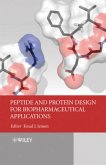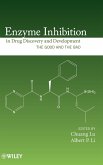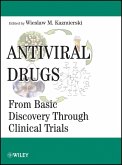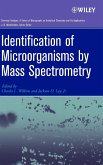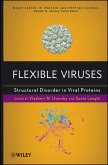Enzybiotics, by using enzymes to fight bacteria, offer a novel and promising new way to combat infectious diseases. This book presents the state of the art and therapeutic potential of enzybiotics, with a stress on therapeutic applications. The coverage offers a unique combination of medicinal chemistry, microbiology, genetics, and biochemistry.
Presents the latest research and applications for a new, promising approach to fighting infectious diseases
Enzybiotics is a promising way of fighting bacterial or fungal infectious diseases by using viruses or viral-derived lysins. Drawing from the fields of medicinal chemistry, microbiology, genetics, and biochemistry, this book presents the state of the science in enzybiotics research, fully exploring its emerging therapeutic applications.
The book begins with four chapters that review the potential applications, possible advantages, and phylogeny of enzybiotics. Next, the book explores:
A new approach to controlling infections using Gram-negative bacteria
Bacteriophage holins and their membrane-disrupting activity
Anti-staphylococcal lytic enzymes
Membrane-targeted enzybiotics
Design of phage cocktails for therapy from a host-range point of view
Novel methods to identify new enzybiotics
Genetically modified phages that deliver suicidal genes to target bacteria
The authors, all active enzybiotics researchers, offer a variety of perspectives, the benefit of their own hands-on investigations, as well as a thorough review and analysis of the current literature.
As more and more bacteria become resistant to antibiotics, the development of new disease-fighting agents has become essential. This book demonstrates the full potential of the emerging field of enzybiotics to control infectious diseases. Moreover, it will serve as a springboard for new research and the development of new therapeutics.
Hinweis: Dieser Artikel kann nur an eine deutsche Lieferadresse ausgeliefert werden.
Presents the latest research and applications for a new, promising approach to fighting infectious diseases
Enzybiotics is a promising way of fighting bacterial or fungal infectious diseases by using viruses or viral-derived lysins. Drawing from the fields of medicinal chemistry, microbiology, genetics, and biochemistry, this book presents the state of the science in enzybiotics research, fully exploring its emerging therapeutic applications.
The book begins with four chapters that review the potential applications, possible advantages, and phylogeny of enzybiotics. Next, the book explores:
A new approach to controlling infections using Gram-negative bacteria
Bacteriophage holins and their membrane-disrupting activity
Anti-staphylococcal lytic enzymes
Membrane-targeted enzybiotics
Design of phage cocktails for therapy from a host-range point of view
Novel methods to identify new enzybiotics
Genetically modified phages that deliver suicidal genes to target bacteria
The authors, all active enzybiotics researchers, offer a variety of perspectives, the benefit of their own hands-on investigations, as well as a thorough review and analysis of the current literature.
As more and more bacteria become resistant to antibiotics, the development of new disease-fighting agents has become essential. This book demonstrates the full potential of the emerging field of enzybiotics to control infectious diseases. Moreover, it will serve as a springboard for new research and the development of new therapeutics.
Hinweis: Dieser Artikel kann nur an eine deutsche Lieferadresse ausgeliefert werden.




